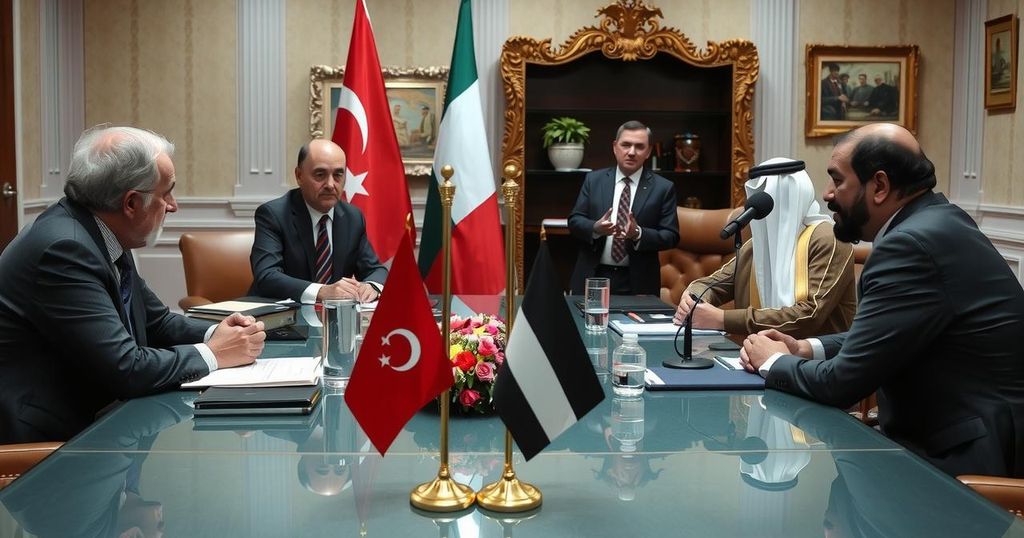U.S., Turkey, Jordan, and Qatar Diplomats Engage with HTS Leader in Syria
Turkey’s Foreign Minister visited Damascus to negotiate with HTS leader Ahmed al-Sharaa on drafting a new constitution, addressing Kurdish affairs, and Israeli incursions. The U.S. may lift a $10 million bounty on al-Sharaa, with increased military presence acknowledged by the Pentagon, revealing evolving dynamics in Syrian political relations.
On Sunday, Turkey’s Foreign Minister visited Damascus for discussions with Ahmed al-Sharaa, the leader of Hay’at Tahrir al-Sham (HTS) and the new de facto authority in Syria following the downfall of the Assad regime. The agenda of their meeting included crucial topics such as the formulation of a new Syrian constitution, the status of Kurdish populations, and the implications of Israeli operations asserting sovereignty over Syrian territories. In a significant shift, the Biden administration is considering the removal of a previously imposed $10 million bounty on Mr. al-Sharaa, connected to his alleged ties to al-Qaeda. Concurrently, a United States delegation held a meeting with him in the Syrian capital. In addition, foreign ministers from both Jordan and Qatar arrived in Damascus for related discussions. Furthermore, the Pentagon has disclosed an increase in United States military presence in Syria, with approximately 2,000 troops currently deployed, a figure that surpasses the earlier estimate of 900 troops.
The political landscape in Syria has been tumultuous, especially following the ousting of President Bashar al-Assad by HTS, an Islamist group. This recent engagement between diplomacy and HTS signals notable developments in both Syrian governance and external international relations. The meeting highlights ongoing international concerns regarding stability in the region, especially relating to issues of Kurdish autonomy and regional security dynamics, particularly influenced by Israeli actions.
In conclusion, the recent diplomatic meetings involving U.S., Turkish, Jordanian, and Qatari officials with HTS leader Ahmed al-Sharaa mark a significant turn in Syrian negotiations. These discussions not only address internal governance matters such as constitutional reform but also implicate broader regional issues, including U.S. military presence and the shifting international stance towards HTS amid ongoing conflicts in Syria. The potential lifting of sanctions signifies a changing approach by the Biden administration that could reshape diplomatic ties in the region.
Original Source: www.democracynow.org




Post Comment